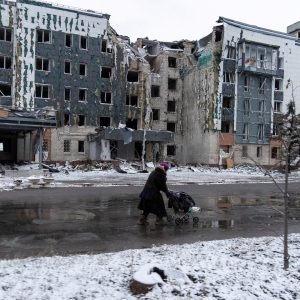
FILIPINOS may have experienced slower inflation in November 2024 due to cheaper rice prices, according to the Bangko Sentral ng Pilipinas (BSP).
In its Month Ahead inflation report, BSP said November inflation may have settled within the range of 2.2 to 3 percent.
This was despite the higher prices recorded for vegetables, fish and meat due to unfavorable weather conditions, higher electricity rates, and petroleum prices.
“These are expected to be offset in part by lower prices of rice. Going forward, the Monetary Board will continue to take a measured approach in ensuring price stability conducive to balanced and sustainable growth of the economy and employment,” BSP said.
On Friday, National Economic and Development Authority (Neda) Secretary Arsenio M. Balisacan also said November inflation will remain within the BSP’s target of 2 to 4 percent.
Balisacan added, however, that it was hard to say whether inflation increased or decreased. Nonetheless, the Interagency Committee on Inflation and Market Outlook (IAC-IMO) did not observe any major disruptions.
On Thursday, Trade and Industry (DTI) Secretary Maria Cristina Aldeguer-Roque said there will be no price increase on basic necessities until the end of 2024, while prices of most Noche Buena items will remain unchanged from last year.
Roque clarified that the minor adjustments, which are already being implemented, reflect the first price changes since last year and were necessary to account for rising costs, especially for imported goods (See: https://businessmirror.com.ph/2024/11/28/no-price-increase-on-basic-necessities-until-yearend/).
“Yesterday during the interview in Malacañang, DTI [said it] is monitoring retail prices all over the country and they see some goods are showing decreases but some are also rising,” Balisacan said.
“But our official number is the one that is released by [PSA] and the one that is more representative because they use proper sampling to ensure that they capture what is actually happening in the country,” he added.
Meanwhile, Bank of the Philippine Islands (BPI) Senior Vice President and Lead Economist Emilio S. Neri Jr. said inflation in November may have averaged 2.5 percent.
This forecast is faster than the 2.3 percent average posted in October 2024, but slower than the 4.1 percent posted in November 2023.
Neri said bad weather may have affected the supply of commodities such as vegetables. He added that the depreciation of the peso may have also been inflationary.
“[Meanwhile] a slower year-on-year increase in rice prices due to base effects and improving supply prospects may have tempered inflation. Stable oil prices in the global markets may have also prevented a sharper monthly increase in consumer prices,” Neri added.
Neri also expects inflation to remain stable in the next six months due to a slower increase in rice prices and the economic slowdown in major economies like China.
Nonetheless, weather disturbances and the further depreciation of the peso remain threats that could drive commodity prices upward.







